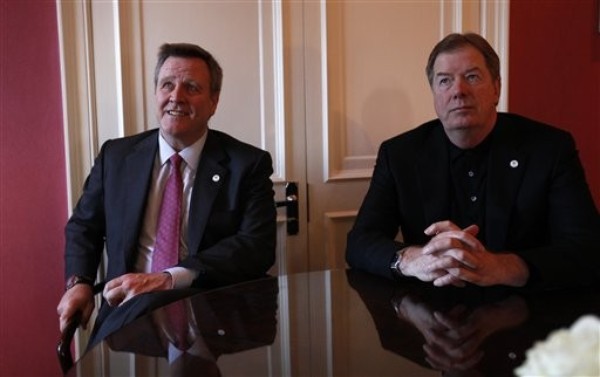In August 2010, a newly elected Slovak government refused to contribute to the first Greek bail-out. A year later, the rising popularity of the anti-euro True Finns pushed the Finnish government to demand that Greece should put up collateral in return for new loans. Which eurozone country will be next in line to hold up a bail-out package or veto new rules? Austria could be a good candidate.
Each time a smallish EU country balks at euro rescue efforts, analysts and policy-makers scramble to figure out its political dynamics and wonder why they had missed the brewing storm. With populism on the rise in much of Europe, and big countries dominating eurozone decision-making, it is only a matter of time before the next member-state throws a spanner in the works.
Receive email alerts
The EU's traditional mode of decision-making is too cumbersome to fight the euro crisis. Instead, Chancellor Angela Merkel and President Nicolas Sarkozy have regularly pre-cooked plans before euro summits. Small and discreet bodies such as the Frankfurt Group (Germany, France, the European Central Bank, two other EU representatives and the IMF) have taken centre stage. The EU's Brussels-based institutions have often been sidelined. So have smaller EU countries. Resentment about not having a voice has helped to lift nationalist and anti-euro forces in such countries. Their interventions are making EU policy-making a lot less predictable.
Austria could be the next place where the rise of anti-euro populists turns into a problem for the EU as a whole. The anti-immigrant and anti-euro Freedom Party (FPÖ) is polling neck and neck with the established parties, the conservative People's Party (ÖVP) and the Social Democrats (SPÖ), which currently govern the country in a grand coalition.
A national election is not due until 2013. But in Austria's scandal-ridden politics, an early election cannot be ruled out altogether. Some say that the current impasse over a planned national debt brake and austerity measures could spell the end of the ÖVP-SPÖ coalition.
During the days of the late party leader Jörg Haider, the FPÖ joined a coalition government with the ÖVP, prompting the other EU countries to boycott the Austrian government. Wolfgang Schüssel, Austria's wily chancellor (prime minister) at the time, managed to neutralise the FPÖ in government. The party duly split in 2005 and for a while fell back to single digit support levels. Now it could be heading back towards 30 per cent. It is too early to predict the next election outcome. But tired of their deadlocked, squabbling grand coalition, Austrians seem to dread the spectre of an even bigger coalition of ÖVP, SPÖ and Greens (to keep the FPÖ out of power) just as much as a renewed ÖVP-FPÖ tie-up.
Few Austrians think that the current ÖVP leader (and foreign minister), Michael Spindelegger, could control the FPÖ's firebrand leader, Heinz-Christian Strache. Strache already boasts that he will be the next chancellor. Strache's personal approval ratings are awful, he lacks a comprehensive programme, and his party is as prone to scandals as its peers. But Strache's promises to stop sending Austrian money to Brussels, hold referendums on existing euro rescue packages and start a debate about Austria leaving the euro resonates with the many EU-sceptic Austrians.
The Austrians' ambivalence towards the EU has long been a puzzle. As a small, open and centrally located country that lives on exports and tourism, Austria has benefited a lot from the EU single market and the euro. Yet Austria has punched below its weight in Europe, its EU policies have been rather parochial (with few initiatives beyond the Balkans) and it has not produced as many great European figures as, for example, Sweden or Finland.
In surveys the Austrians have consistently been among the most sceptical about the EU. In the latest Eurobarometer poll, published in December 2011, 42 per cent of Austrians said they had a bad image of the EU. In neighbouring Germany, France and Italy, those shares are much lower, at 20-25 per cent.
However, Austria's euroscepticism looks shallow. When asked more specifically whether they trust EU institutions, and want the EU to get more involved in, say, protecting the environment or fighting terrorism, the Austrians show themselves as solid (though not enthusiastic) pro-Europeans. While the Austrians are much less keen on more EU co-operation to save the euro than the Dutch or Finns, over half of Austrians say they would welcome eurobonds.
If the public mood on Europe appears confused, the government's EU policies are even more so. In a baffling U-turn on the big parties' traditional pro-EU stance, Faymann and Spindelegger in 2008 promised to hold referendums on future EU treaty changes. But after agreeing to the new eurozone-plus treaty (‘fiscal pact') in December, Faymann wiggled out of his referendum promise, causing glee in an FPÖ that has long demanded more direct democracy.
Katinka Barysch is deputy director of the Centre for European Reform.
Read Full Article »



